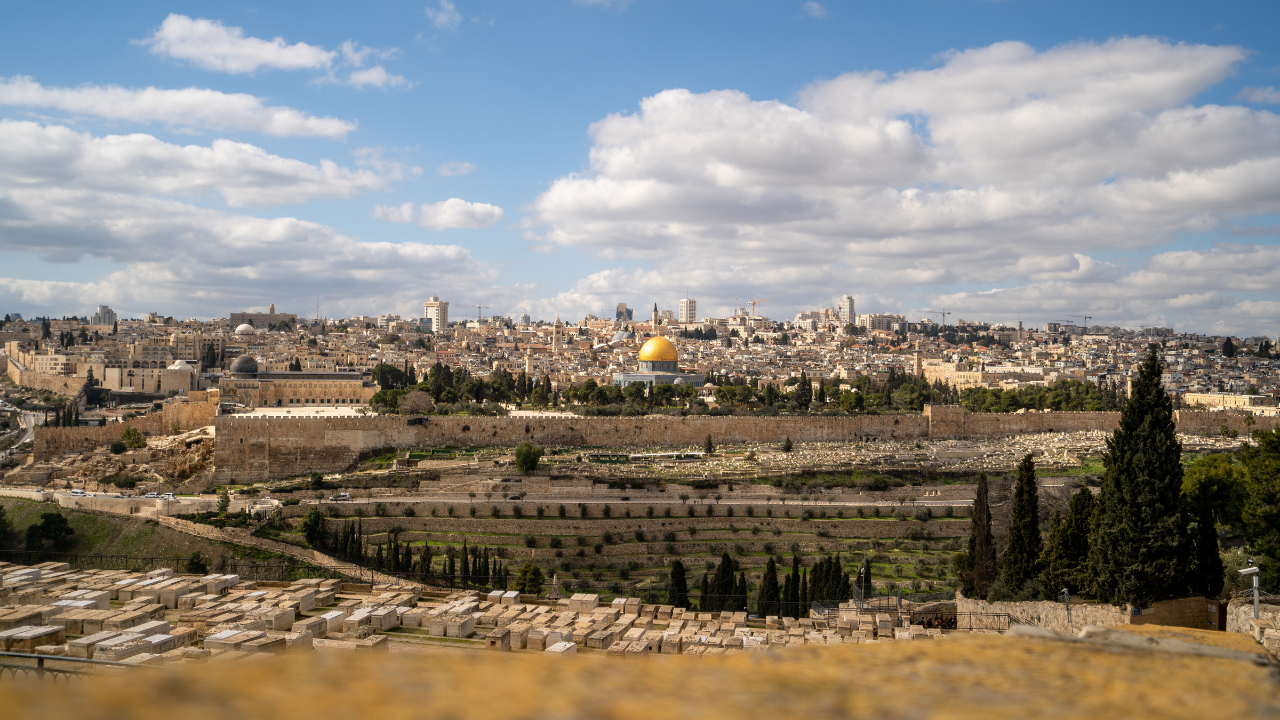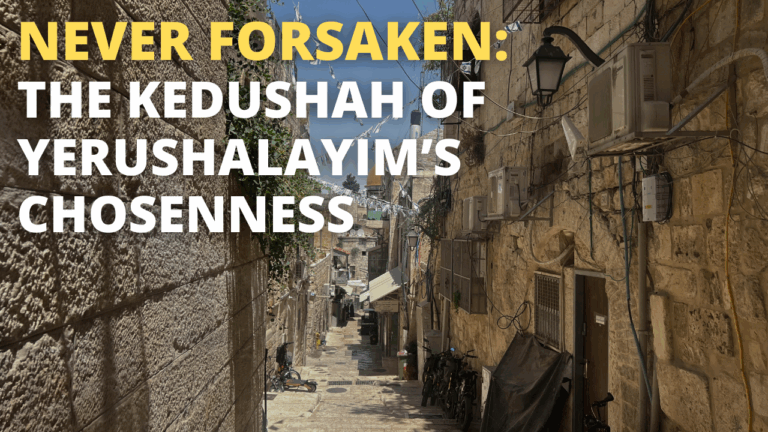The Akeidah and Jerusalem’s Pillar of Holy Fire
The famous story of the akeidah is familiar to us: Avraham Avinu is called upon by God to bring his beloved son Yitzhak as a sacrifice. While Hashem tells Avraham to sacrifice Yitzchak on a mountain “which I will tell you”, there is never any indication in the pesukim that God told Avraham where the place of sacrifice would be. Instead, the Torah tells us that Avraham traveled for three days and saw this designated place from a distance. But how did God inform him that this was the proper location for the akeidah?
The Midrash (Pirkei d’Rebbe Eliezer 31) informs us that Avraham witnessed a supernatural phenomenon that made Hashem’s will clear: a pillar of fire rising from the top of a mountain up into the heavens. Yitzchak also witnessed this same awesome phenomenon. In the words of the midrash, it is then that “Avraham understood that the lad desired to ascend.” Avraham then turned to his accompanying attendant, identified by Hazal as Yirshmael, and asked him whether he witnessed anything strange in the mountains ahead. Yishmael saw nothing. Concluding that Yishmael was unattuned to the awesome spirituality of this special makom and did not deserve access to the top of the mountain, Avraham tells him to stay with the donkey below. Just as the donkey was oblivious to its surroundings, so too, Yishmael was unable to perceive that which was lofty, pure, and true.
As the Rambam points out (Hilkhot Beit HaBehirah 2:1-2), the akeidah took place in the center of Jerusalem, at the future location of the altar in the Beit HaMikdash. Hashem told Avraham to bring Yitzchak to Eretz Hamoriya, and the verse in Divrei Hayamim (2, 3:1) is explicit that Shlomo HaMelekh built the holy temple on the mountain of Moriya. The pillar of fire that Avraham and Yitzchak witnessed together was a symbol of Jerusalem’s spiritual destiny, the place where Jews would sacrifice to God and ascend to the highest levels of spirituality as they united heaven and earth through their sincere service.
However, this fire represented something even more profound to Avraham. In this week’s parsha when interceding with God on behalf of Sodom, Avraham refers to himself as “dust and ash”. As Rashi notes on the spot, Avraham was already miraculously saved from the fires of Nimrod. If not for God’s intervening hand, Avraham would have become ash in the fires of Ohr Kasdim. For Avraham, the fire ascending from Jerusalem represented the willingness to sacrifice everything for the truth of God and to walk in His ways, much like Avraham had already done in his youth. Yitzchak’s spiritual ability to see this fire testified that he was also ready to become “ash”, to take up the spiritual mantle of his father and wholeheartedly sacrifice everything to God under the covenant of Avraham and everything he stood for. The midrash attests the “ashes of Yitzchak” permanently sit in view of the Ribbono Shel Olam, reminding Him of our forefather’s willingness to sacrifice everything to sanctify Hashem’s name in this world.
Yishamel had also proven his ability to sacrifice by willingly undergoing circumcision at the age of 13. However, his inability to see the holy fire of Jerusalem proved his inadequacy and warped view of what sacrifice for God means. Shevu lachem po im hahamor. Yishmael’s warped sense of self-sacrifice expresses itself in destructive moral debauchery, barbarous cruelty, and a sick disregard for the value of life. He becomes the opposite of Avraham’s legacy. In contrast, Yitzchak’s descendants inherited the selfless desire to sacrifice everything on behalf of goodness, to sanctify God’s name, and protect the vulnerable and downtrodden. Again and again, they have risen from the ashes to rededicate themselves to the glory of Hashem’s name. Truly, they are ready to ascend onto the holy mountain.



